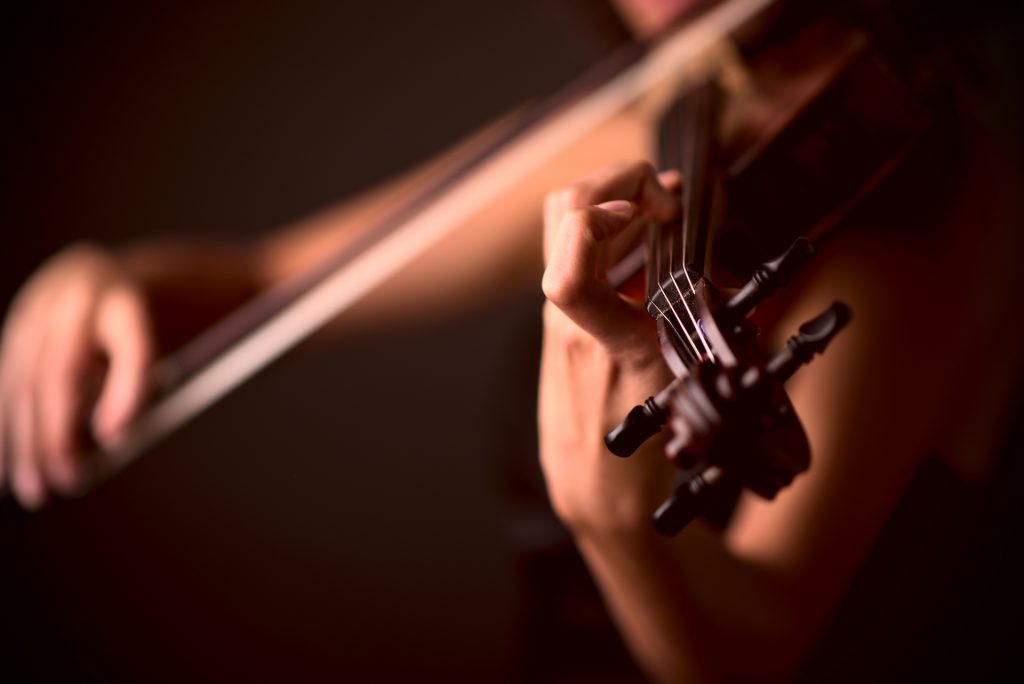“I am not a soldier. I do not do politics. I just play the violin.”
Three simple and exact sentences spoken by a frail-looking young woman from a basement in Ukraine that has become a makeshift bomb shelter. Vera Litoshenko is not a household name, but she should be.
There is a social media video of her playing her violin for the men, women, and children huddled in this basement. The walls are stark, the people are wearing all of their earthly belongings on their backs, and yet it is a moment of sublime stillness and beauty punctuated by the sound of Vera’s violin.
What a gift Ms. Litoshenko gave to these people. What a gift she has given to anyone who views the video.
There is a reason liturgical music exists. God always reaches us through this wonderful human attribute of putting melodies and notes in some metaphysical, specific order that moves hearts and touches the deepest recesses of our souls.
I cannot read music. I can barely read English. But music can make me think of something that happened when I was 9 or 29 or 49. I cannot explain it, but I know most people have a similar relationship with this uniquely human form of communication.
Like a lot of the gifts we get from God, there is a mystery to music — not easily understood, but as real as the rising of the sun. And it is a spiritual connection that goes back a long way. King David had the gift of music and was rather adept at the lyre. It must have been a source of great comfort for him to play when his heart was troubled. Since he had a king-sized dose of trouble, the lyre was probably always at the ready.
History is filled with momentous times when someone decides that music is the only response to calamity. When British General Charles Cornwallis was faced with the humiliating task of having to hand his sword over to George Washington and his ragtag group of American revolutionaries, he ordered the army’s band to play a tune called “The World Turned Upside Down.”
During World War I, the sounds of machine-gun fire and the cries of the wounded and dying went eerily silent one Dec. 24. In a spontaneous act of charity from both sides of the front, soldiers put their guns down in what became known as the Christmas Eve truce.
The sheer otherworldliness of traditional Christmas carols wafting across a no-man’s land bombed into a moonscape garners visions of a bleak Tim Burton fantasy film. Yet amid this stark example of our fallen nature, music emerged, if only briefly before the savagery resumed on Dec. 26.
When that relentless metaphor the Titanic was sinking in the North Atlantic, the ship’s band continued to play as long as the increasing tilt to their horizon allowed. Various survivors had varying opinions as to what exactly the last tune the band played was, but in the end that doesn’t matter. What did matter was the universal memory of all the survivors — of the music playing and how it eased their fear.
Music was a staple in almost every Nazi death camp, but it had a very different purpose. It was used to control and humiliate concentration camp prisoners. Whole orchestras were assembled out of the ranks of the imprisoned for the purpose of providing entertainment for camp officers and guards as they went about the performance of their “duties.” But amid this horror came countless stories of musicians playing for themselves and for their fellow prisoners. It was how some kept hope alive in a hopeless situation.
And here we are in the 21st century: A war rages and music emanates from a bomb shelter. With bombs exploding overhead, a stone-faced young woman plays beautiful music on her violin not to make a political statement, and not to engender hatred for the soldiers of an invading army who have been doing hateful things. Her only goal is to play those mysterious sequences of musical notes that take the people huddled in that bomb shelter to a better place in their hearts and minds.
Victor Hugo, a man who knew how to write about those suffering injustice, said it best: “Music expresses that which cannot be said and on which it is impossible to be silent.”

